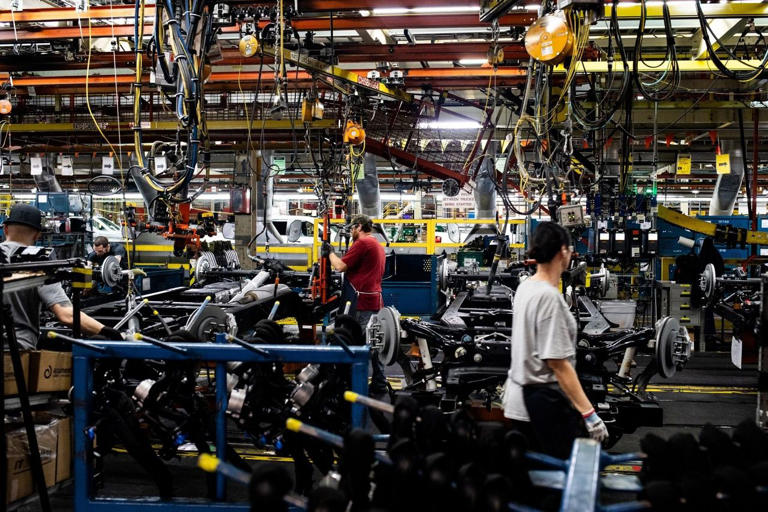A recent economic snapshot of the United States has sent shockwaves through stock and bond markets, as concerns over slowing growth and persistent inflation grip investors.
The latest data, released by the Commerce Department on Thursday, revealed a sluggish expansion of gross domestic product (GDP) in the first quarter, coupled with stubbornly high inflation figures.
According to the report, GDP grew at a rate of 1.6% on a seasonally- and inflation-adjusted annual basis, falling short of economists’ expectations of 2.4%. Concurrently, inflation, measured by the Federal Reserve’s preferred gauge, remained firm in March, indicating potential challenges ahead for monetary policymakers.
Traditionally, lackluster growth figures would fuel hopes of interest rate cuts by the Federal Reserve. However, the persistent pressure of inflation complicates this outlook, dampening expectations of imminent monetary policy shifts.
The revelation of robust consumer spending on services like healthcare and insurance offered a glimmer of positivity amid the economic concerns. Economists emphasize that underlying demand remains strong, cautioning against overreaction to isolated data points.
“The domestic economy is performing well, with prices slightly elevated but not excessively so,” remarked Eugenio Alemán, chief economist at Raymond James.
Despite the slowdown in spending on goods and other contributing factors to the GDP deceleration, experts remain optimistic about the economy’s resilience. Teresa Ghilarducci, an economics professor at the New School for Social Research, stated the potential benefits of reduced inventories, suggesting a potential uptick in investment in the coming quarters.
Meanwhile, concerns over inflation persist, with the personal-consumption expenditures price index excluding volatile food and energy prices rising by 3.7% in the first quarter, exceeding expectations.
The combination of slowing growth and persistent inflation presents a challenging scenario for policymakers, especially against the backdrop of an election year.
Despite these challenges, recent data suggests that the American economy continues to defy expectations, with employers expanding staff and businesses expressing optimism. Earnings reports from companies like General Motors and Lockheed Martin reflect strong demand and growth prospects, contributing to overall positive sentiment.



